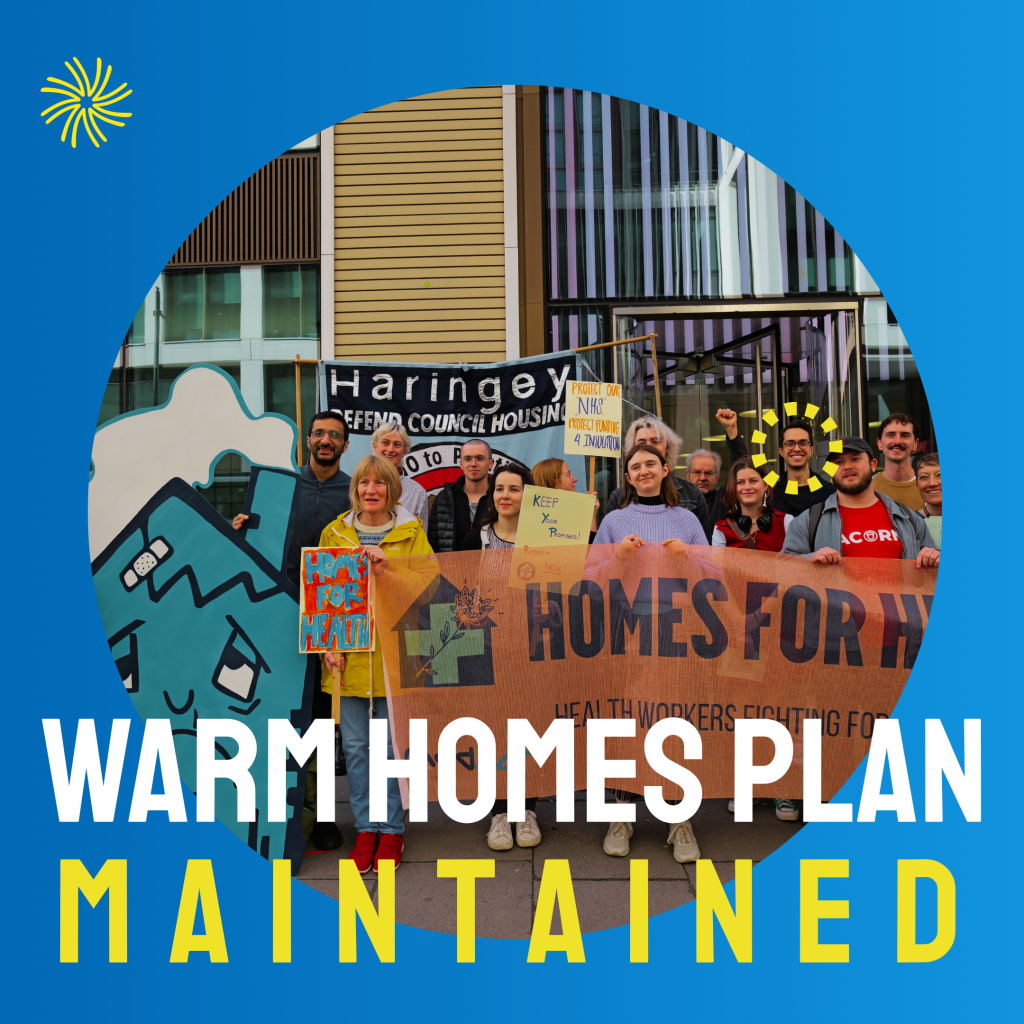History Repeating? Comment on Potential Cuts to the Warm Homes Plan

Update on 12/6/25:
Positive news in the government spending review – with Labour maintaining its commitment to the Warm Homes Plan, its £13bn fund dedicated to insulate and decarbonise 5m cold, leaky homes.
We now need to step up our efforts across the board to lift more people out of fuel poverty, and create a just transition to a cleaner, fairer energy system in future 💡.
In the above photo – Selce’s Energy & Private Renter Advisor Gustavo at a demonstration with Medact, calling on the government to commit to the Warm Homes Plan.
Our original post, published before this news, follows:

What is the Warm Homes Plan:
In its manifesto, the Government committed in its Warm Homes Plan to upgrade five million homes over next five years to cut bills for families and deliver warmer homes to slash fuel poverty. This ambition is a key part of the Government’s ‘second mission’ to transform Britain into a clean energy superpower, including providing the country with clean energy by 2030, reducing bills, and transitioning homes to clean heat as part of its wider ambition to reach net zero by 2050.
The Zero Carbon Homes Standard was scrapped by David Cameron in 2016. Its aim was to make sure that: “all new dwellings from 2016 would generate as much energy on-site – through renewable sources, such as wind or solar power – as they would use in heating, hot water, lighting and ventilation.”
Research from ECIU shows that new build energy bills are now £1000 higher because of its cancellation. Up to this point, the public has had to pay £5bn more in energy bills than they would have otherwise.
Fast forward to today – and you’d be forgiven for thinking history is repeating – with talk that the government is considering watering down its Warm Homes Plan – £6.6bn currently earmarked to make our homes cheaper to run and more energy efficient.
E3G research shows that maintaining the plan would support 37,000 jobs and reduce energy bills in 3m homes… meanwhile a letter to the Treasury from 54 firms said that maintaining funding as originally promised could bring 12,000 new jobs within 5 years, while cutting the plan in June “will result in the loss of 3,000 skilled, future proof roles.”
Additionally, the above research suggests that cutting the fund would most negatively impact those areas with the highest rates of fuel poverty.
Selce CEO Giovanna Speciale says: “Cutting the Warm Homes Plan will only result in higher bills for the public – some of whom are already the most vulnerable to fuel poverty. It will also undoubtedly damage growth, skills and the further development of the retrofit sector.”
Further reading:
ECIU on past impact of cutting back on investment
Letter from business leaders and trade bodies, coordinated by E3G
